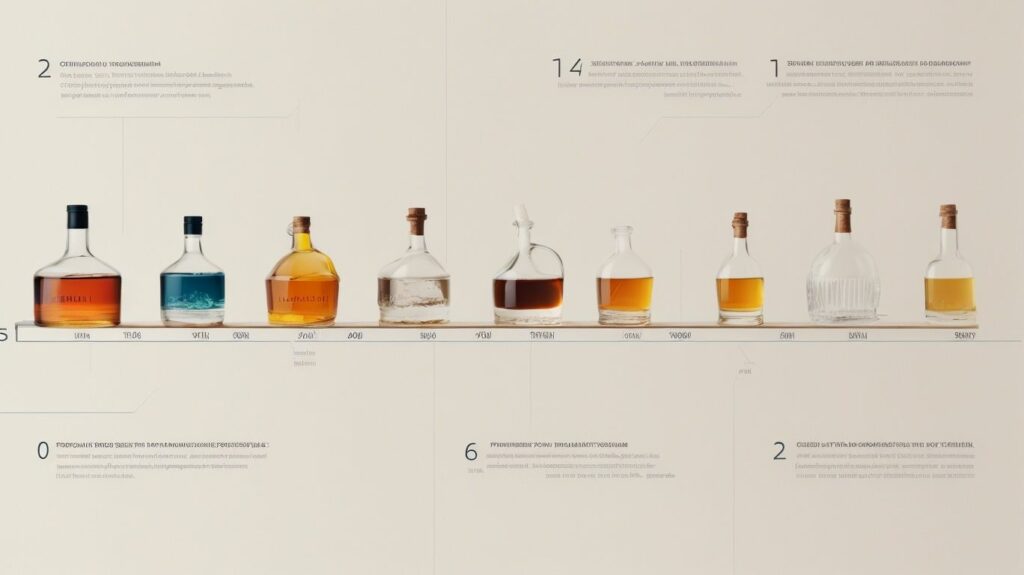20+ Years Experience
Specialist Alcohol Help

Alcoholism, a term often heard but not always fully understood, affects millions of lives worldwide.
With consequences ranging from physical and mental health issues to social and professional problems, recognising alcoholism and seeking help is crucial.
But how can we identify the signs and symptoms of alcoholism, and what can be done to prevent and treat it?
In this blog post, we will delve into the world of alcoholism, exploring its stages, factors contributing to its development, and various treatment and prevention strategies.
Recognising the signs of alcoholism is crucial for early intervention and prevention of severe consequences. Symptoms can be physical, emotional, behavioural, social, or work-related.
A subtle warning sign might be easily overlooked, but excessive alcohol consumption can lead to health issues and negatively impact both personal and professional life.
Prolonged drinking can result in serious health complications and other life-threatening negative consequences too. When alcohol addiction begins to have a negative impact on an individual’s life and causes harm, it is classified as an alcohol use disorder (AUD).
Physical symptoms of alcoholism include withdrawal, tolerance, and health issues related to excessive alcohol consumption.
Increased tolerance to alcohol means an individual requires a higher quantity of alcohol to experience the same effects as previously.
Potential for alcohol use disorder withdrawal symptoms may include nausea, sweating, shaking, anxiety, and insomnia, even in cases of mild alcohol use disorder.
It is important to be cautious when you consume alcohol, as consuming it in excess may result in liver damage, heart disease, and an increased risk of certain types of cancer.
Emotional and behavioural symptoms involve mood swings, denial, and changes in personality or habits. Denial is a common factor in the millions of people who do not seek treatment for alcoholism.
Individuals may attempt to justify their heavy drinking and behaviours by attributing their heavy drinking to external factors. When confronted about their excessive drinking, they may become defensive rather than acknowledging the issues that have arisen from alcohol use disorders.
A mental health professional can help identify and address unhealthy alcohol use, which includes any pattern of drinking that puts one’s health or safety at risk or leads to alcohol-related problems.
By working with a mental health services administration, individuals can gain access to the necessary resources and support for their mental health needs.
Social and work-related symptoms of alcoholism include isolation, relationship problems, and decreased work performance.
When an individual’s alcohol abuse starts affecting his life negatively and begins to cause harm, it might be an indication of Alcohol Use Disorder (AUD).
It is important to recognise such warning signs and take timely necessary steps. Early treatment is recommended to return to the activities and hobbies that bring joy. Assistance is available by conversing with a treatment provider.
Some individuals attempt to conceal their drinking habits by drinking in secret and avoiding social interaction. Only 8.9% of people with AUD receive treatment.
If two or more CAGE questions are answered affirmatively, seeking professional medical aid is advised. Contacting a treatment provider to locate alcohol treatment centres in the vicinity is a viable option.
For those willing to stop drinking alcohol and live a healthy, sober life, intervention by loved ones and advice from a specialist in alcohol treatment may be beneficial.
Alcohol Use Disorder (AUD) or alcohol use disorder is diagnosed using the criteria from the Diagnostic and Statistical Manual (DSM-5), with severity based on alcohol affects the number of symptoms. Seeking professional help is essential for the proper diagnosis and treatment of alcohol abuse and alcoholism or of alcohol abuse and alcoholism or alcohol use disorder either.
AUD is a diagnosable condition according to the DSM-5 criteria, which is published by the American Psychiatric Association, with severity determined by the number of symptoms present. Obtaining professional assistance is critical for accurate diagnosis and effective treatment.
Mild, moderate, and severe AUD are determined by the number of symptoms present, with more symptoms indicating a greater need for intervention.
Mild AUD is characterised by 2 to 3 symptoms present, moderate AUD by 4 to 5 symptoms, and severe AUD by 6 or more symptoms.
AUD is classified into 3 categories based on the number of criteria met by a person. These are mild (2–3), moderate (4–5), or severe (6 or more).
Recognising the need for help and seeking professional assistance is crucial for successful treatment and recovery.
If you feel that your alcohol consumption is becoming excessive, if your own drinking problem is creating difficulties, or if your family is expressing concern about your drinking behaviour, it is time to seek help.
Speaking with someone who has had a similar issue but has managed to overcome it may be helpful for those in denial about their drinking problem.
Decreasing alcohol consumption can lead to improved health, strengthened relationships with others, and enhanced performance in work or school.
Factors contributing to alcohol abuse include family history, genetics, environmental factors, and stress or coping mechanisms.
Family history and genetics may influence the development of AUD, as certain individuals may be genetically predisposed to the disorder.
Environmental factors associated with alcohol abuse include per capita alcohol consumption, drinking norms, physical abuse and stress, easy access to alcohol, and family environment.
Stress and unhealthy coping mechanisms can lead to an institute on alcohol abuse and misuse as a means of self-medication.
Family history and genetics play a significant role in the development of AUD, with genetic factors in certain individuals being more susceptible. Research indicates that genetic makeup can potentially increase an individual’s susceptibility to AUD.
The potential implications of family history and genetics on AUD may involve an elevated risk of developing the disorder, as well as a heightened risk of relapse.
Environmental factors, such as peer pressure and social norms to consume drinking alcohol, can contribute to an alcohol use disorder or abuse. Drinking norms refer to the attitudes and behaviours problem drinking that are accepted and encouraged within a given culture or social group.
This can lead to an increased likelihood of an alcohol use disorder, alcohol abuse and alcoholism itself, as drinking is perceived as a normal or expected behaviour.
Physical abuse and stress can be associated with an increased risk of alcohol abuse, as individuals may use alcohol as a means of coping with challenging circumstances. Easy access to alcohol and the family environment can also play a role in alcohol abuse.
Stress and unhealthy coping mechanisms can lead to alcohol misuse as a means of self-medication. Stress is a physiological and psychological reaction to a situation or event that is perceived as a challenge or threat.
Unhealthy coping mechanisms are behaviours employed to manage stress that can be damaging to one’s physical and psychological well-being, such as substance misuse, overeating, and evasion.
It is possible that individuals may employ alcohol as a means of self-medicating in order to manage stress, anxiety, depression, or other mental disorders, leading to a pattern of alcohol misuse and further mental health challenges.
Stages of alcoholism include early, problematic, and severe, with each stage presenting unique challenges and risks. In the early stages of alcoholism, experimentation, binge drinking, and the development of tolerance are common.
The problematic stage of alcoholism is characterised by a loss of control over alcohol intake and the presence of multiple symptoms.
Severe-stage alcoholism involves physical dependence, chronic mental health disorders and issues, and significant life disruptions.
Early-stage alcoholism involves experimentation with drinking alcohol, binge drinking, and the development of tolerance to alcohol intoxication.
Binge drinking is defined as the consumption of an amount of alcohol that brings a person’s blood alcohol content to 0.08 or greater within a two-hour period, generally requiring four drinks for women and five drinks for men within two hours.
Increased tolerance to alcohol means an individual requires a higher quantity of alcohol to experience the same effects as previously, or having no alcohol affects the capacity to either consume alcohol or more alcohol than usual without feeling the effects too much time drinking too much alcohol. Intense and frequent cravings for alcohol can result in increased consumption complications alcohol during this stage.
Problematic stage alcoholism is characterised by loss of control over alcohol intake and the presence of multiple symptoms, such as physical and psychological dependence and withdrawal symptoms when abstaining from alcohol.
Physical health issues associated with the problematic stage of alcoholism can include liver damage, while mental health issues can include depression, anxiety, and memory loss.
Chronic alcohol dependence is characterised by an inability to limit alcohol intake and physical and psychological reliance on alcohol. This stage may also result in financial difficulties, strained relationships, and legal repercussions.
Severe-stage alcoholism involves physical dependence, chronic health issues, and significant life disruptions.
The indications of the advanced stage of alcoholism encompass serious physical and or mental disorders and conditions, chronic, mental disorders, and physical problems, life repercussions, and dangerously high reliance on alcohol.
The chronic mental and physical issues linked to the severe stage of alcoholism include depression, anxiety, insomnia, and other mental health issues, as well as liver and heart damage, and other physical health issues.
The potential impacts of the most advanced form of alcoholism can include financial difficulties, strained relationships, job termination, and legal repercussions.
Treatment options for AUD include medication-assisted treatment, behavioural therapies, and support groups or recovery programs. Medication-assisted treatment involves the use of FDA-approved medications to reduce or stop drinking.
Behavioural therapies aim to change drinking behaviour and address underlying issues contributing to alcohol abuse.
Support groups and recovery programs provide peer support and long-term assistance in maintaining sobriety.
Medication-assisted treatment for AUD involves the use of FDA-approved medications, such as naltrexone, acamprosate, and disulfiram, to reduce or stop drinking.
A medically supervised detox may be necessary for individuals at risk of experiencing withdrawal effects when abstaining from alcohol.
Alcohol withdrawal is a medical condition, that can be potentially life-threatening when an individual who has been consuming alcohol heavily over an extended period of time abruptly ceases consumption.
Behavioural therapies for alcohol abuse aim to change drinking behaviour and address underlying issues contributing to alcohol abuse.
Cognitive Behavioral Therapy (CBT) is a widely utilised behavioural therapy for treating AUD, focusing on recognising and altering detrimental thought processes and behaviours associated with the alcohol use disorder. Research has demonstrated that CBT is effective in assisting individuals to achieve and sustain sobriety.
Other behavioural therapies employed to treat AUD include Motivational Interviewing, Contingency Management, and Family Therapy.
These therapies are a crucial component in treating AUD, enabling individuals to identify and modify negative thought patterns and behaviours associated with their alcohol use disorder themselves, thus allowing them to attain and maintain sobriety.
Support groups and recovery programs provide peer support and long-term assistance in maintaining sobriety for those dealing with AUD.
Examples of such support groups include Alcoholics Anonymous (AA), Alcohol Change UK, Frank, London Friend, Turning Point, and We Are With You. Mutual-support groups offer peer support for abstaining from or cutting down on alcohol consumption.
Establishing support networks can be beneficial in preventing or addressing alcohol abuse and alcoholism, as well as providing emotional and practical support, accountability, and motivation.
Prevention strategies for alcoholism include education and awareness, building healthy coping skills, and establishing support networks.
Education and awareness programs help individuals understand the risks and consequences of alcohol abuse.
Building healthy coping skills can prevent reliance on alcohol as a means of dealing with stress or emotional issues.
Establishing support networks, such as friends, family, or professional help, can provide assistance in preventing or addressing alcohol and substance abuse using.
Education and awareness programs, such as school-based interventions for middle school students, awareness campaigns, and training programs for healthcare professionals, can help individuals understand the risks and consequences of alcohol abuse.
School-based interventions typically employ interactive activities, such as role-playing and group discussions, to help students comprehend the dangers of alcohol use.
In collaboration with a more serious national, national institute on alcohol abuse and, national institute on alcohol and abuse,, these programs can further enhance their effectiveness and reach.
Awareness campaigns utilise media outlets, including television, radio, and print, to disseminate the message about the potential risks and consequences of alcohol abuse.
Training programs for healthcare professionals equip them with the necessary skills to identify and treat individuals with AUD.
Building healthy coping skills can prevent reliance on alcohol as a means of dealing with stress or emotional issues.
Healthy activities that can assist with AUD include exercising, engaging in hobbies, spending time with loved ones, and taking part in activities that bring pleasure and relaxation.
Deep breathing, progressive muscle relaxation, mindfulness, and cognitive-behavioural therapy have been shown to be effective stress management techniques for individuals with AUD.
Establishing support networks, such as friends, family, or professional help, can provide assistance in preventing or addressing alcohol abuse.
Constructing a support system can furnish an individual with the requisite resources and assistance to assist them in handling their AUD.
Possessing a support system can also provide individuals with the instruments and techniques to help them address their symptoms and cultivate healthy coping mechanisms.
Support groups can be a beneficial avenue for those dealing with AUD. They can provide a safe space to discuss their experiences and receive support from medical professionals and others who are going through similar experiences.
If you experience difficulties controlling your drinking, such as drinking more than intended or drinking in inappropriate places or occasions, these other symptoms of alcohol problems can be signs that you are an alcoholic.
Alcoholism is a serious condition that can have a major impact on your life. It is important to seek help if you think you may have a health problem along with alcohol addiction. Professional treatment can help you manage health problems, stop drinking, reduce unhealthy alcohol, and get your life back on track.
There are four types of drinkers: social drinkers, enhancement and disease to control alcohol, drinkers, coping drinkers, and conformity drinkers.
Understanding which type of person you may be can help guide the way you approach drinking responsibly.
Social drinkers drink alcohol for pleasure and to socialise. They tend to drink in moderation and don’t drink heavily rely on alcohol to cope with alcohol problems, with stress or to fit in with a group.
Alcohol misuse can have serious long-term consequences on the body, including:
These health risks can be avoided by reducing or eliminating alcohol consumption. People who are at risk of developing an alcohol use disorder should seek help from a healthcare professional.
Treatment options include counselling, medication, and a support group or groups. With the right help, individuals can learn to manage their drinking and reduce their risk of developing serious health problems.
Alcoholism is the most severe form of alcohol abuse and involves an uncontrollable desire to drink, which can lead to health problems and social issues.
It is also known as alcohol use disorder and is classified into three categories: mild, moderate, and severe.
Alcoholism progresses through three distinct stages: early, problematic, and severe.
Each stage presents its own unique challenges and risks, psychological and behavioural health statistics and psychological aspects, of health problems which should be taken seriously.
It is important to recognise the signs of each stage and to seek help if needed. Early-stage alcoholism is characterised by increased alcohol consumption, cravings, and tolerance.
In conclusion, understanding and recognising the signs and symptoms of alcoholism is crucial for early intervention and prevention.
By exploring the stages, factors contributing to alcohol abuse, and effective treatment and prevention strategies, we can better equip ourselves and those around us to address this pervasive issue.
Let’s continue to educate ourselves and others, build healthy coping skills, and establish support networks to create a healthier and more informed society, free from the shackles of alcoholism
There are a range of other services that we can provide. Have a look at the list below for more information:











































































































































We Aim To Reply To All Enquiries With-in 24-Hours